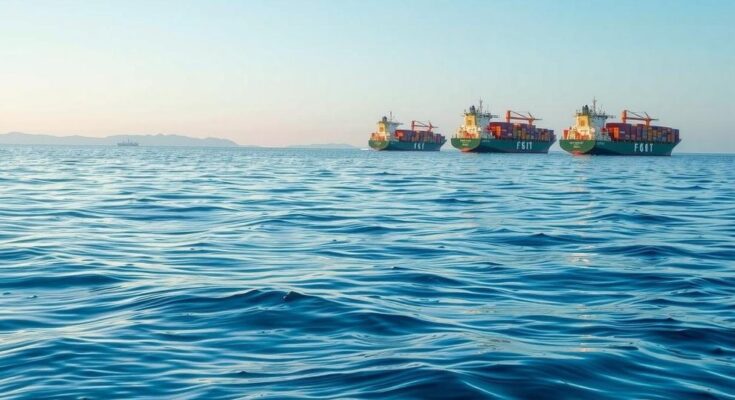NIMASA is spearheading efforts to abolish war risk insurance premiums on Nigeria-bound cargo to alleviate financial burdens estimated at over $400 billion annually. The agency points to significant improvements in maritime security, including the elimination of piracy, justifying the call for premium removal. Despite Nigeria’s successful maritime security initiatives, international insurers persist with high premiums, prompting ongoing diplomatic efforts to garner support for change.
War risk insurance (WRI) is an additional charge imposed by international shipping companies on cargo destined for Nigeria, consisting of war risk liability and war risk hull coverage. This insurance surcharge was introduced during the peak of Niger Delta militancy and piracy, resulting in Nigeria paying over $1.5 billion in WRI to insurers within the last three years. The economic burden is substantial, exemplified by a Very Large Crude Carrier suffering a cost of approximately $445,000 in WRI per voyage.
Acknowledging the significant economic drawbacks associated with WRI, the Nigerian Maritime Administration and Safety Agency (NIMASA), led by Dr. Dayo Mobereola, has initiated efforts to eradicate these premiums for Nigeria-bound cargo. The agency’s maritime reforms are grounded in the NIMASA Act and the Merchant Shipping Act, which promote the development of shipping. Security conditions have improved, with no piracy incidents reported in over three years, prompting Nigeria’s removal from the International Maritime Bureau’s piracy-prone list.
To mitigate WRI premiums, Nigeria, through the Ministry of Marine and Blue Economy and the Ministry of Defense, has invested significantly in maritime security. The Deep Blue Project notably eliminated piracy for over 30 consecutive months. Nigeria also collaborates with international organizations to combat maritime threats. Despite improvements, shipowners and insurers remain unresponsive, continuing to impose high premiums.
Dr. Mobereola is actively advocating for the removal of WRI premiums on an international stage, engaging with organizations such as BIMCO and the International Chamber of Shipping. He has highlighted Nigeria’s substantial investments in maritime security while calling for global recognition of the country’s enhanced security status. Prominent figures, including BIMCO’s Deputy Secretary General Stinne Taiger Ivø, have corroborated Nigeria’s progress.
NIMASA’s recent engagement with a Danish delegation, led by Chief Technical Advisor Kristin Skov-Spilling, aims to persuade Denmark to influence Maersk Line in favor of reduced WRI premiums. Critics argue against Denmark’s involvement, but the mutual economic benefits warrant greater collaboration from influential entities. Dr. Mobereola’s leadership has successfully directed international attention towards Nigeria’s burdensome WRI cost, emphasizing that the country cannot sustain these premiums indefinitely, thereby highlighting the need for immediate change.
The Nigerian Maritime Administration and Safety Agency’s proactive efforts to eliminate war risk insurance premiums are poised to significantly benefit Nigeria’s economy. Improved maritime security has led to the country’s removal from piracy-prone lists, yet international shipping companies continue to impose these premiums. The ongoing diplomatic efforts by Dr. Mobereola and NIMASA emphasize the necessity for recognition of Nigeria’s enhanced security status, bridging the gap between local needs and international shipping practices.
Original Source: www.thisdaylive.com




